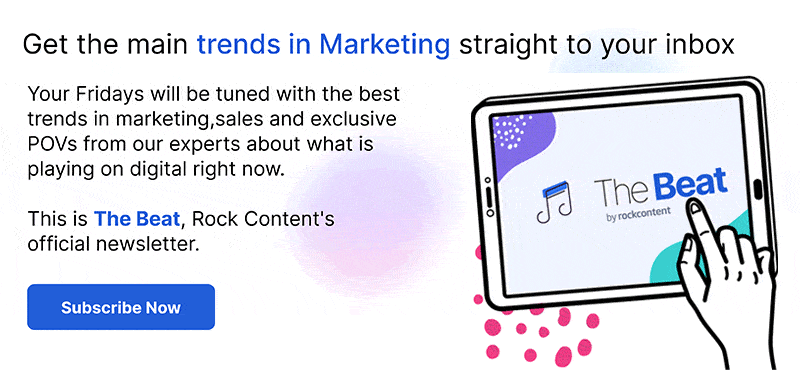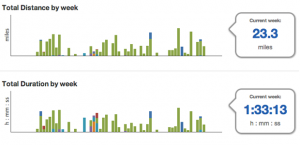We’ve been seeing for quite some time that Google is shaking things up a little when it comes to how it reads content and decides what’s relevant for SERPs.
Well, no wonder this is happening. When surveys indicate that users are not satisfied with Google results and that younger generations are choosing TikTok over Google for search, it probably means SERPs need improvement.
Some big changes have been announced, such as Google’s September 2022 Core Algorithm Update and the Helpful Content Update, and some other small ones. Even if they are not game changers, they have a big impact on our SEO strategies.
The last one is about link building and how the strategy has been losing its relevance, according to John Mueller, Google’s Search Advocate, when answering a question about the weight of links in an SEO strategy in an interview.
Among so many changes in our SEO strategy, is it possible that link building is dying? Let’s dig into Google’s affirmation about that.
Link building is losing its relevance to SEO
To understand what’s going on, let’s take a look at Mueller’s full quotes from the interview:
“Well, it’s something where I imagine, over time, the weight on the links at some point, will drop off a little bit as we can’t figure out a little bit better how the content fits in within the context of the whole web. And to some extent, links will always be something that we care about because we have to find pages somehow. It’s like how do you find a page on the web without some reference to it?”
“But my guess is that over time, it won’t be such a big factor as it sometimes is today. I think already, that’s something that’s been changing quite a bit.”
As Google better understands how content fits into the context of the entire web, links may not be as necessary. On the other hand, they continue to be a ranking factor and the quotes above reinforce this – “the links will always be something we care about because we have to find the pages somehow.”
Even so, we can’t deny that link strategies are changing and SEO professionals need to prepare for this. Let me help you with that by bringing some examples, practical tips and my view on the subject.
Is link building a ranking factor for Google?
Yes, but this is not a Google answer. Despite a consensus in the SEO industry that backlinks matter, there is no documentation explicitly stating that links are a ranking factor.
The only certainty we have is that search engines do penalize spam and gray hat practices, as you can see in Google’s Spam Policies.
If you want to check other ranking factors, I recommend reading Google Search Fundamentals, which I already mentioned in another article around here, and this article that brings a complete market study on Google ranking factors that is worth saving in your favorites.
Now that we have that clarified, let me present arguments for both sides of the coin.
Why is the backlink losing relevance?
Check out this interactive infographic about the history of Google’s algorithm updates.
Notice the evolution of the algorithm and the trajectory of link building:
- With Panda, Google started to penalize link farms and showed the world how the practice of spam was bad for the content available online.
- Despite this, the market continued to try to circumvent search engine technology until Penguin figured out what low-quality links were and reduced the practice of link buying.
- To the point where links didn’t even appear as a priority in the latest updates.
In other words, Google has stopped talking about backlinks!
History shows us that the focus should be on good content and that good content should be produced for people. And then you are generating enough reason to generate backlinks organically.
Also (and here’s my opinion), technology has evolved so much and so many factors must have been added that link building becomes just one more.
Why is the backlink still relevant?
On the other hand, nobody said that link building is dead (by the way, here’s the answer to the title: no, link building is not dead).
You see, losing relevance does not mean completely eliminating the importance of this strategy. It means that maybe you do need to rethink the resources invested in that basket.
John Mueller himself said that Google should still be concerned about this because it is one of the ways to crawl the internet. And we’re not just talking about their crawlers, you and I as users also like the links, as long as they are well-made links.
In addition to that, back in 2016 (four years after Penguin) another big tech guy brought a stir to the market. Andrey Lipattsev said that having good content and links leading to it was the main ranking factor.
A few years ago, in 2019, a study by Stone Temple Consulting showed that there is a strong relationship between the first places and their backlink strategy.
And it’s obvious! How can you not give importance to a great recommendation? If BuzzFeed or Business Insider links to my content in their post, I’ll be super excited. So, of course that must be a factor in putting me in the top spot.
So, how does one do link building nowadays?
If you were in doubt about how to put your link strategy into practice, know that there are still several of them that are in accordance with Google’s guidelines.
I’d recommend reading the amazing article Link Building for SEO: The Definitive Guide (2022) by Backlinko. Skip straight to chapter 6 which talks about strategies. I’m sure you’ll be shocked by what you read.
What I can add to this Backlinko post that I apply in my daily life is:
- Being part of the SEO community and being aware of partnership opportunities (LinkedIn, forums, Slack groups, etc.);
- And turning on Google alert for the brands I manage. Every time one of them is mentioned, you can contact the content producer to ask them to insert a link in the brand name. The same can be done to receive alerts for long tail keywords.
Google never told you to stop investing in the backlink strategy. It just doesn’t recommend black market SEO practices. By the way, talking about links and clicks was always somewhat veiled, after the company realized that this could encourage malicious actions.
Finally, don’t despair every time a comment or change is posted on Google. Focus on making good content!
Do you want to continue to be updated with Marketing best practices? I strongly suggest that you subscribe to The Beat, Rock Content’s interactive newsletter. There, you’ll find all the trends that matter in the Digital Marketing landscape. See you there!








